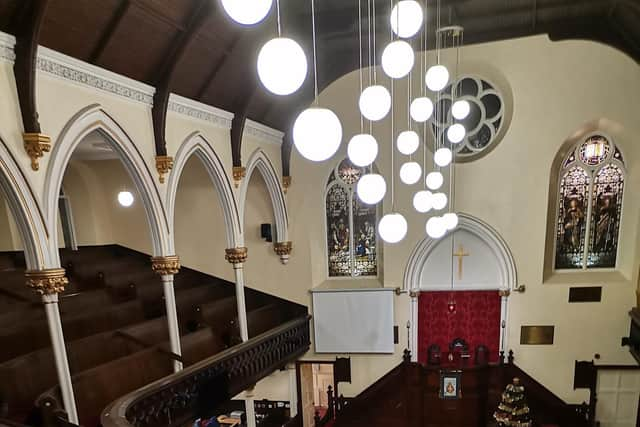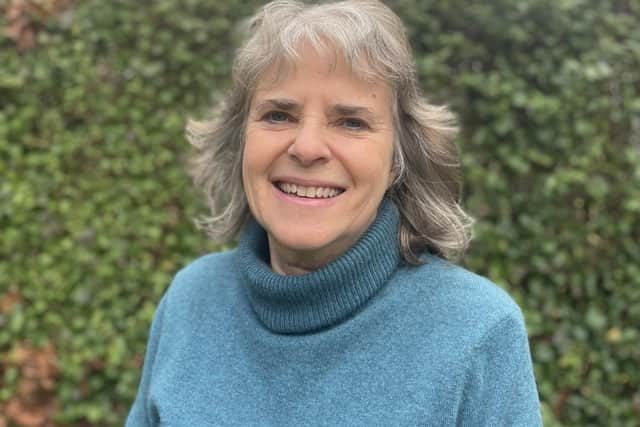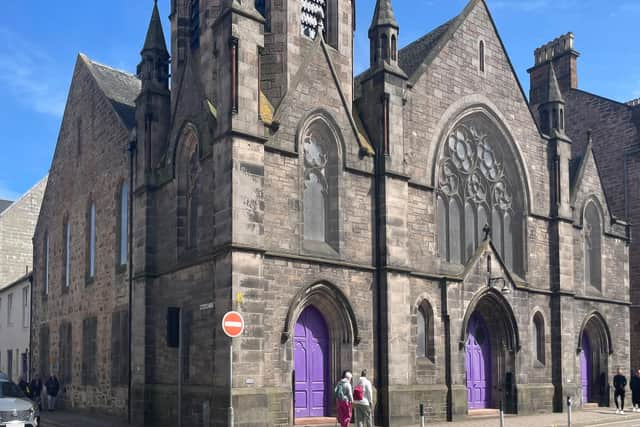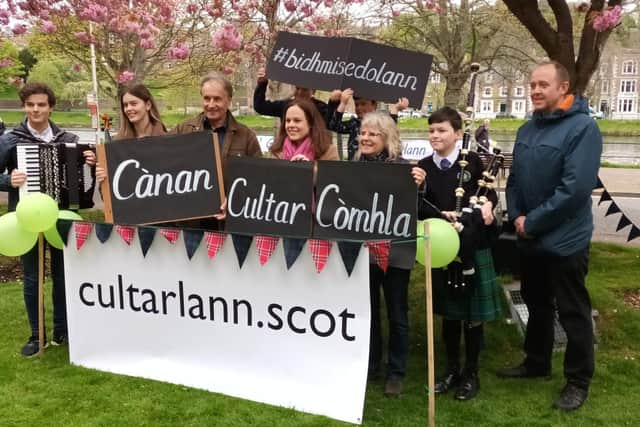Inverness gets first Gaelic community and cultural centre to give speakers 'a place to go'
Now, Inverness will soon get its first Gaelic community centre with the Highland capital to become home to a place where Gaelic is spoken, shared and learned.
Cultarlann Inbhir Nis will provide a vital function in a city that has a high volume of school students who learn in Gaelic – but have few places to take the language once they have left their secondary education behind.
Advertisement
Hide AdAdvertisement
Hide AdIn addition, the city has thousands of speakers from the older generation distanced from their language while overseas visitors with an interest in Gaelic culture are without a centre point where they can readily hear and experience the language as part of every day life.


It is hoped that Cultarlann Inbhir Nis will bring together all these people – and many more – to normalise everyday use of the language and help nurture it in the present – and help save it for the future.
Margaret Mulholland is on the board of directors of Cultarlann Inbhir Nis and a lifelong learner of the Gaelic with deep links to the language held by her family. Her grandparents came from the Isle of Lewis and her three children all went through Gaelic Medium Education (GME) in Inverness, a city where learning in Gaelic has been offered since the 1980s. Today, Highland remains the highest provider of GME in Scotland.
In 2021, it was reported that 61% of Gaelic learners in secondary schools were in Highland with the number growing faster than the national rate.


Mrs Mulholland said that, in light of levels of Gaelic spoken in Inverness, it had long been felt that a place was needed where people could use the language.
Mrs Mulholland said: “My three children all went through Gaelic medium education and it has been available in Inverness for around 40 years. That means literally thousands of children have gone through Gaelic medium here and then they can do Gaelic as a subject at secondary school if they choose to.
“But beyond secondary school there is nowhere for them to actually use their language. The opportunities are very restricted, unless you go on and become a Gaelic teacher or you go into a job in the media.
"But for the vast majority of Gaelic speaking teenagers coming out of school, they don’t go into these jobs – they just go into ordinary jobs according to what they are interested in, whether that be a nurse, a scientist, a mechanic, whatever and there is no opportunity for them to continue using what they have learned and develop their language.
Advertisement
Hide AdAdvertisement
Hide Ad

"Folk have been aware of that for a long time and there has been talk in Inverness for the need for somewhere for decades, I would say. People were aware of it but there was no focus or discussion on what it might look like. “
It wasn’t until her son met a couple of tourists from Nova Scotia in a city bar that the idea for Cultarlann Inbhir Nis really started to gain power.
Mr Mulholland said: “Personally the impetus for me to do something about it was when my youngest son came back from university in the summer holidays and arranged to meet up with pals in the local pub and he told me in the morning what happened.
"He said they had got chatting to a couple of young Canadians and these Canadians said they had come from Nova Scotia to find out something about Gaelic and to meet with other Gaelic speakers or to meet other young people who might be involved with Gaelic.


"They were ultra disappointed to find there was absolutely nothing. When my son started speaking to them in Gaelic, these guys were absolutely over the moon that that they had found Gaelic speakers and they had great craic for the rest of the evening
"In the morning when my son told me this, I just thought ‘what a disgrace’. Why is it that we don’t have somewhere where visitors can come and actually hear Gaelic or where there is some sort of presence in the town and what are we doing when our own kids have nowhere to use the language when they come back home? That was really the personal spur for me to think ‘if no-one else is going to do something, I am just going to try and get something going’.”
The centre will be based in the East Church, which was put up for sale by the Church of Scotland earlier this year. More than 600 people contributed to a crowdfunder to buy the premises , which was put on the market at offers over £230,000, with the church “feeling like home” for Cultarlann Inbhir Nis given its long association with Gaelic.
With a history going back 225 years, Gaelic services were held for the many fluent speakers in the congregation, a tradition that continued right up to lockdown.
Advertisement
Hide AdAdvertisement
Hide AdInspiration for the centre also came from Aonach Mhacha, the new £2m lrish language centre in Armagh, Northern Ireland, which Mrs Mulholland has visited several times and whose leaders came to Inverness to share their work and vision as a place for community, culture and regeneration. The name translates as ‘Assembly of Macha’ and is taken from the great Gaelic tribal assemblies or ‘Aonachs’ which had their origins in Irish pre-history.
Mrs Mullholland said: “What is interesting about Aonach Mhacha – and this just hit the nail of the head for us – is that it is about supporting the culture, it is about a place where people can go and use the language, where native speakers can mix with Gaelic medium students across the generations and bring the community together. They were also looking to the future and the social and economic benefits of having such a place and that then really struck a chord with us.
“The situation in Ireland is different but that centre was brand new, there was huge investment which shows you that there was great financial support, but it is the fact that they were focused on creating a living, breathing, centre – a living centre where people meet. Gaelic will be the living language of the place.
Ms Mulholland said the centre would be “Gaelic first”, adding: “Whether that means someone has one word or they are fluent, they are equally welcome.”
Comments
Want to join the conversation? Please or to comment on this article.
